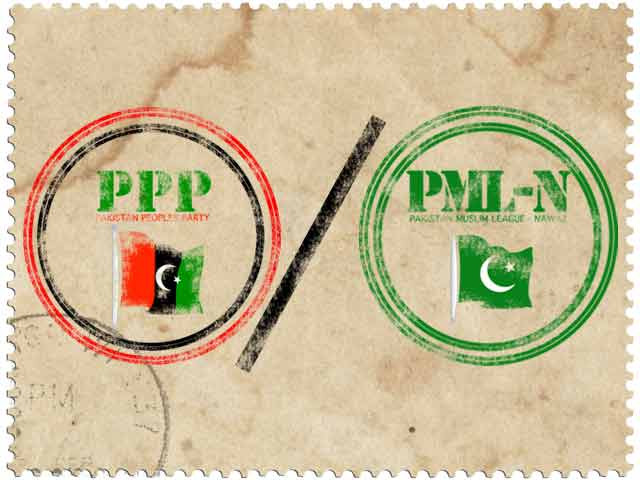Uproar in ruling coalition over ISI’s special powers
Allies question unilateral decision, voice concern over increasing role of spy agency on civilian affairs

Members of the ruling party and its allies on Saturday questioned Prime Minister Shehbaz Sharif’s decision to grant the Inter-Services Intelligence (ISI) status of a Special Vetting Agency (SVA), thus empowering it to conduct verification and screening of all government officers before their induction, appointments and postings, as well as promotions.
Some members belonging to allied parties even criticised the prime minister for not taking the coalition partners and parliament into confidence, vowing to take the matter to the court.
They quipped that the premier should also consider including politicians in the notification as “most of the traitors” were there.
“This has been done behind the back of coalition partners and parliament,” Pakistan People’s Party (PPP) General-Secretary Farhatullah Babar said, asking why the decision was taken as it is not a single-party government.
Read more: PM tasks ISI to vet govt officers
In a tweet, Babar said that the decision must be unacceptable to many coalition partners, and they must protest to reverse it, adding that unilateral alteration in civil service rules must be challenged.
Babar noted that the agency that “failed to detect Osama bin Laden hiding in Abbottabad” has been tasked with reporting on the competence and professionalism of civil servants. He urged everyone to say no to the decision as it was “unacceptable”.
Pakistan Muslim League-Nawaz’s (PML-N) former information minister Pervaiz Rashid also questioned the move in a tweet, saying that if the task of investigating civilian officers was included in ISI’s responsibilities, then the premier spy agency should also be placed under civilian control and be accountable to the parliament.
PPP Senator Mustafa Nawaz Khokhar chided the premier on tasking the intelligence agency to vet government officers by “requesting” that PM Shehbaz include all public office holders in the notification at once. “Why discriminate against politicians?” Khokhar asked, adding that “after all, traitors are more common in our ranks”.
Khokhar was referring to the notification’s part where it used the words verification and screening of all public office holders but then added the words “officers’ category” in brackets.
Similarly, PPP’s former chairman Senator Mian Raza Rabbani also said that the notification issued by the federal government, declaring the ISI as the SVA, was “surprising”.
“The verification and screening of all civil servants before their induction, appointments, postings and promotions by the SVA amounts to ceding civilian space,” Rabbani said. Given the situation on the eastern and western borders, the Afghan situation, Kashmir, internal terrorism and other related issues, he said, the additional task will be overburdening it.
“It also blurs the distinction between the civil and military bureaucracy as well as lack of confidence in the civilian apparatus of the state,” Rabbani maintained, saying that the 1973 Constitution and the Civil Servants Act, 1973, as amended by parliament, is a comprehensive law.
“They do not require such screening of civil servants,” he said. “The courts have in some judgments disregarded intelligence reports in such matters.”
Besides, he added, the civil servants were already working under the pressure of the National Accountability Bureau (NAB) law.
An official of the Jamiat Ulema-e-Islam-Fazl (JUI-F) said that the decision was surprising for the party too as no discussion had taken place in the party meetings on the issue.
With the special status and powers, some bureaucrats said, the spy agency would keep an eye on the moral and financial affairs of the government officers and would submit details to the promotion boards, especially the high-powered board and Central Selection Board (CSB).
Previously, they said, the Intelligence Bureau (IB) was performing the vetting process. Some politicians and government officers, requesting not to be named, said that the government’s move surprised many as several parties in the coalition government used to oppose the interference of the intelligence agencies in the government’s affairs before coming into power.
However, after coming into power, they said, they have done exactly the opposite and, in fact, helped enhance the spy agency’s control over the bureaucracy and governmental affairs.
Incumbent Information Minister Marriyum Aurangzeb was also asked to share her views, but she did not give a comment.
The opposition also questioned the move, with Pakistan Tehreek-e-Insaf (PTI) leaders Fawad Chaudhry and Shireen Mazari taking to Twitter to voice their concerns over the matter.
Fawad said that if "institutions wanted to increase their role in civilian affairs, then they would have to pay for it in the form of public accountability".
"The institution (ISI) has to think about what role it wants to play in Pakistan's politics. A discussion is needed on the new roles of civil institutions and institutions after the media revolution," he added.
Shireen agreed with him, adding that “this debate is critical for the future of democracy in Pakistan”.
The Human Rights Commission of Pakistan (HRCP) also issued a statement in this regard, saying that it was “deeply concerned” by the premier’s decision.
“The role of the military in civilian affairs needs to recede if Pakistan is to move forward as a democracy,” the rights organisation said.



















COMMENTS
Comments are moderated and generally will be posted if they are on-topic and not abusive.
For more information, please see our Comments FAQ